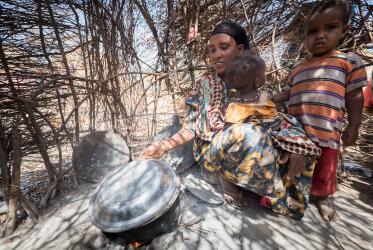Displaying 1 - 20 of 36
Protecting Ethiopia’s church forests
27 October 2021
WCC condemns massacre of farmers in Philippines
12 April 2019
All pilgrim routes lead to COP24
11 December 2018
#WCC70: A prayer about health and healing
20 July 2018
Conversation on HIV “must continue,” Faith Networking Zone shows
07 December 2017
Seven weeks of Lent highlight water crisis in Africa
01 March 2017
“Overcoming economic injustice” vision of WCC’s Athena Peralta
23 February 2017
New videos help congregations hasten HIV response
20 October 2016
Honest talk blossoms between youth, theologians in Cote d’Ivoire
14 September 2016
















